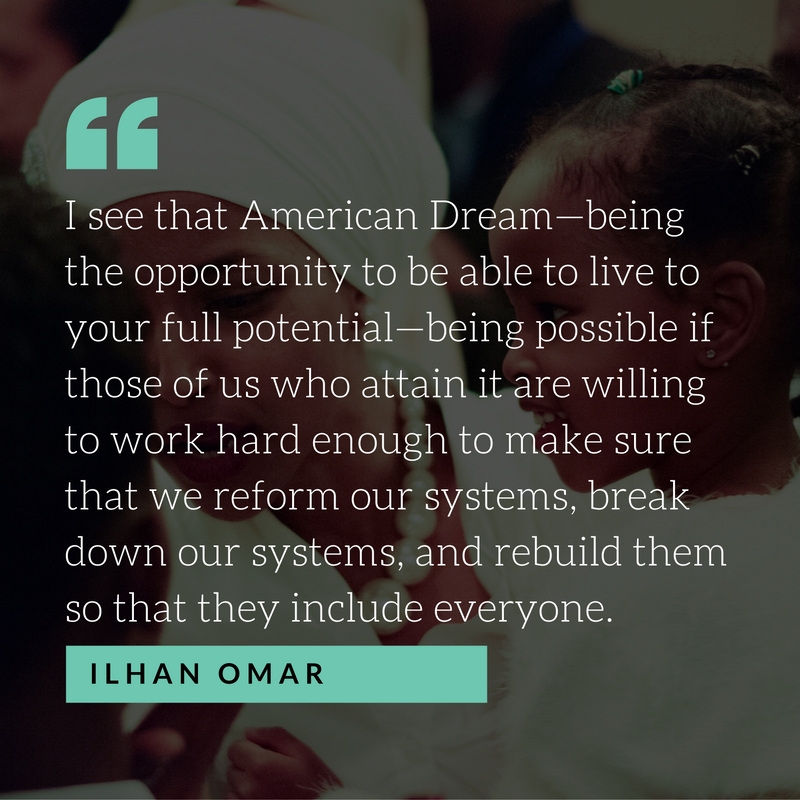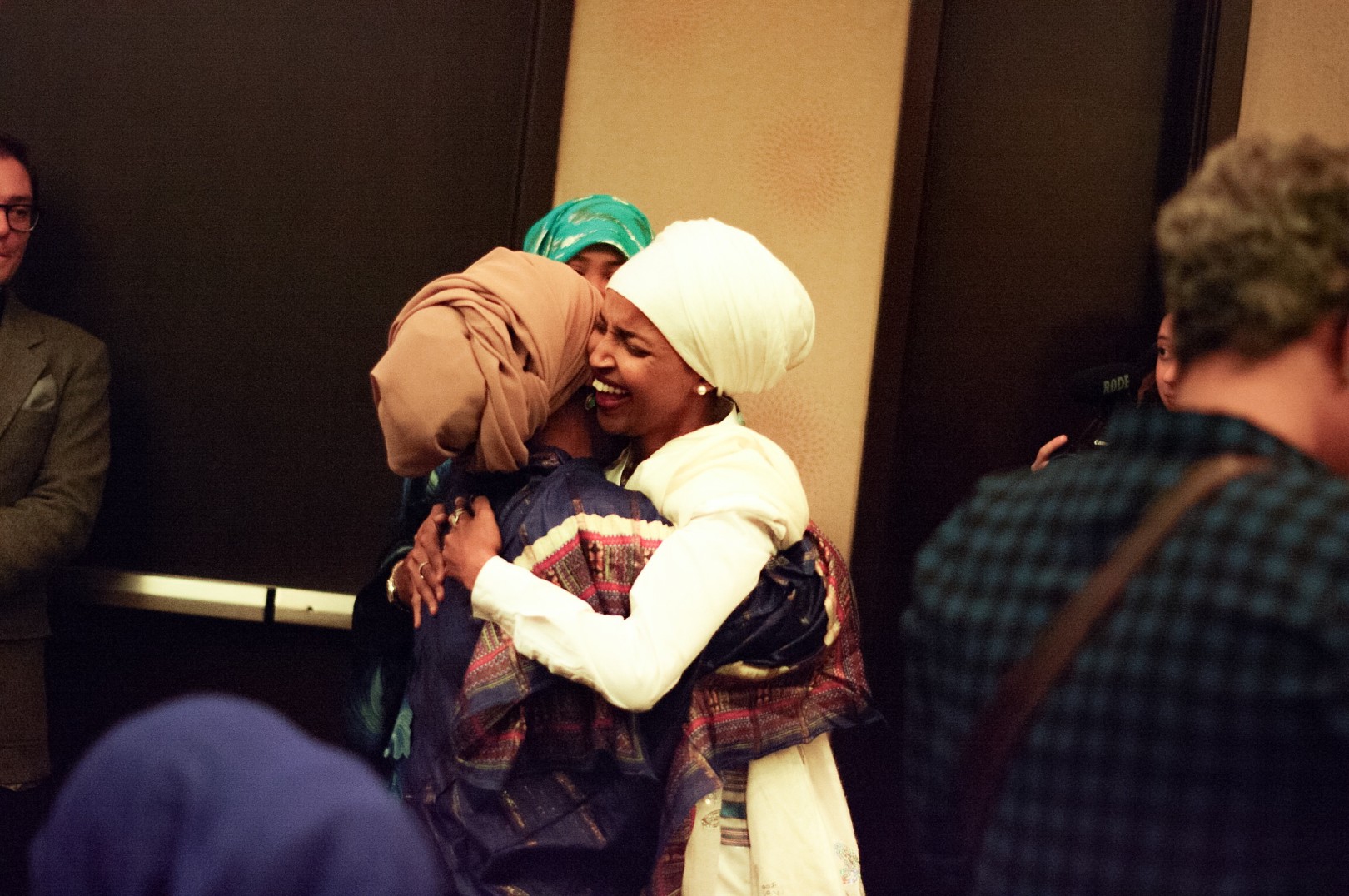Omar talks reform, representation, and the American Dream with The Riveter.
Interview by Kameelah Janan Rasheed
Photos by Kaylen Ralph
The following is an excerpt from an interview between writer and artist Kameelah Janan Rasheed and Ilhan Omar, who, on November 9, became the United States’ first Somali-American legislator. A Muslim and former refugee who proudly wears a hijab, Omar will serve as Minnesota House Representative for District 60B. The Riveter is excited to feature Omar as our sixth issue’s cover story, out this winter.
Kameelah Janan Rasheed: I was hoping that you could talk about how you imagine the American Dream in the context of your personal life, but also in the context of how we get people to a point where we can also feel like they’re living this thing versus feeling like they’re watching people live the American Dream.
Ilan Omar: I think that the American Dream is about not waiting for permission for a particular invite to partake in something, and being given the opportunity to live to my full potential. I think that is sort of the ideals of this country, right? What I hope to do and what I see those ideals is not a reality for everyone. The American Dream isn’t totally attainable and this whole idea of “pull yourself up by the bootstraps” isn’t doable for everyone. That is because we live in a society that has current institutions that have failures for marginalized communities. I see that American Dream—being the opportunity to be able to live to your full potential—being possible if those of us who attain it are willing to work hard enough to make sure that we reform our systems, break down our systems, and rebuild them so that they include everyone.

KR: You had me thinking a little bit about reflective democracy—a representative democracy—which I really think is a beautiful phrase. I’m curious to hear a little bit more about your ideas around reflective democracy and then also representation. As a black woman and as a Muslim black woman, it’s exciting for me to see you [in your position], but there could also be another black Muslim woman in your position who doesn’t represent the views of marginalized people. I’m curious to hear you talk a little bit about where reflection is useful but also how it can be dangerous.
IO: These systems that we talk about were created to reflect the people that they were created to protect. As we talk about the transformations that we need and the reforms that we need, we need to make sure that the representation is reflective and that we are actually looking for that reflective democracy in the people that we are electing. So if you are representing a community that has particular struggles that have to do with race, culture, sexual orientation—whatever that particular struggle is—that you are reflective in the way that you have dealt with the struggle as well in being able to speak to that. We have people who we see speaking for marginalized communities because they share an ethnicity or a [skin] color but none of the other nuanced struggles that come with poverty, class, gender, sexuality—none of that is present. It was never part of their story. They are supposed to be a voice and a reflection of a community that is dealing with these things, and that is where the disconnect happens. We don’t often have trust in government, in activism, in organizing, because we don’t often see ourselves in the people who represent us.
KR: When I was reading about your entrance into politics, there was a lot that talked about you doing translation for your grandfather at meetings, and I’m really interested in now thinking about at what point does the work that you do that’s just every day, just helping out, and creating access for family members or community members, at one point is that no longer just, “I’m helping out”; at what point does that become political work? At what point did you become conscious that what you were doing was political work?
IO: I’ve been given an opportunity to see and actively engage in the system that my grandfather believed was his but wasn’t designed for him. And I want to make sure that those like him see themselves as part of the system—[those] who really desperately want to be a part of leading a new reality for them in this system, that that is possible for them.

Kameelah Janan Rasheed is an artist, writer, and former public school social studies teacher. Her work has been reviewed and written about in the New York Times, Art 21, the Wall Street Journal, ArtSlant, and Hyperallergic. Her longform interviews and essays have been published in The New Inquiry, Gawker, The Guardian and Creative Time Reports. She is currently the Arts Editor for SPOOK Magazine and a contributing editor at The New Inquiry.
Kaylen Ralph is The Riveter’s cofounder, editorial development director and brand director. She works as a personal stylist for Anthropologie. Follow her on Instagram @kaylenralph for books, fashion and a lot of content blending those two subjects. You can also find her on Twitter at @kaylenralph.




